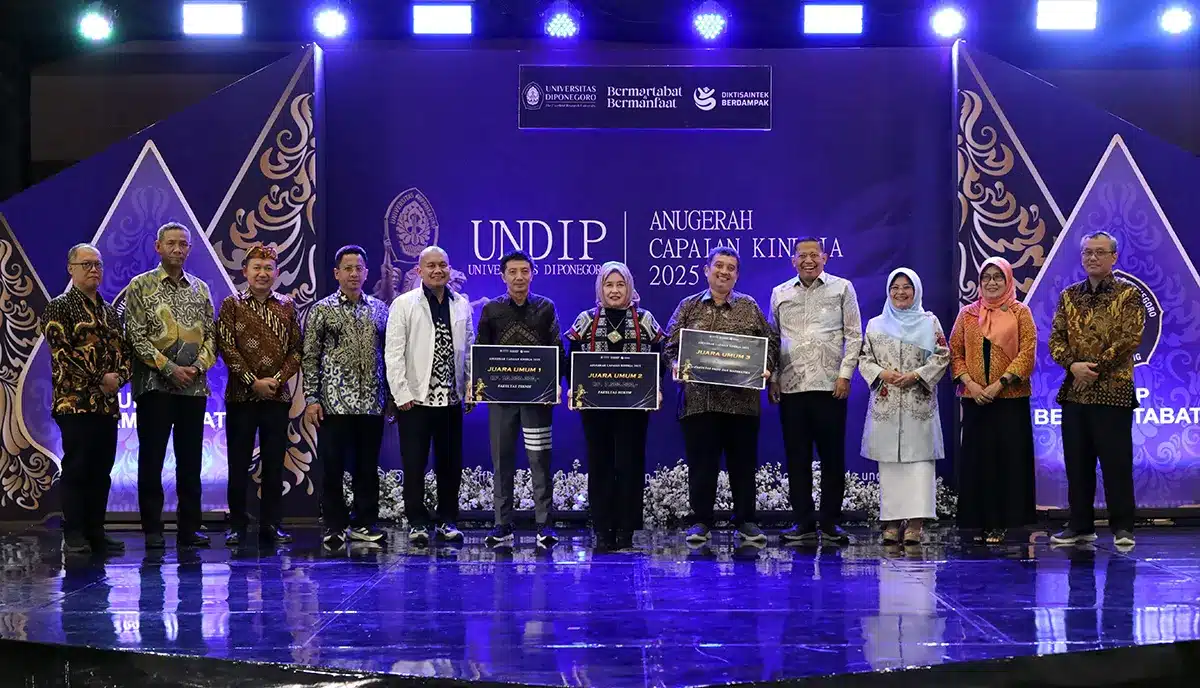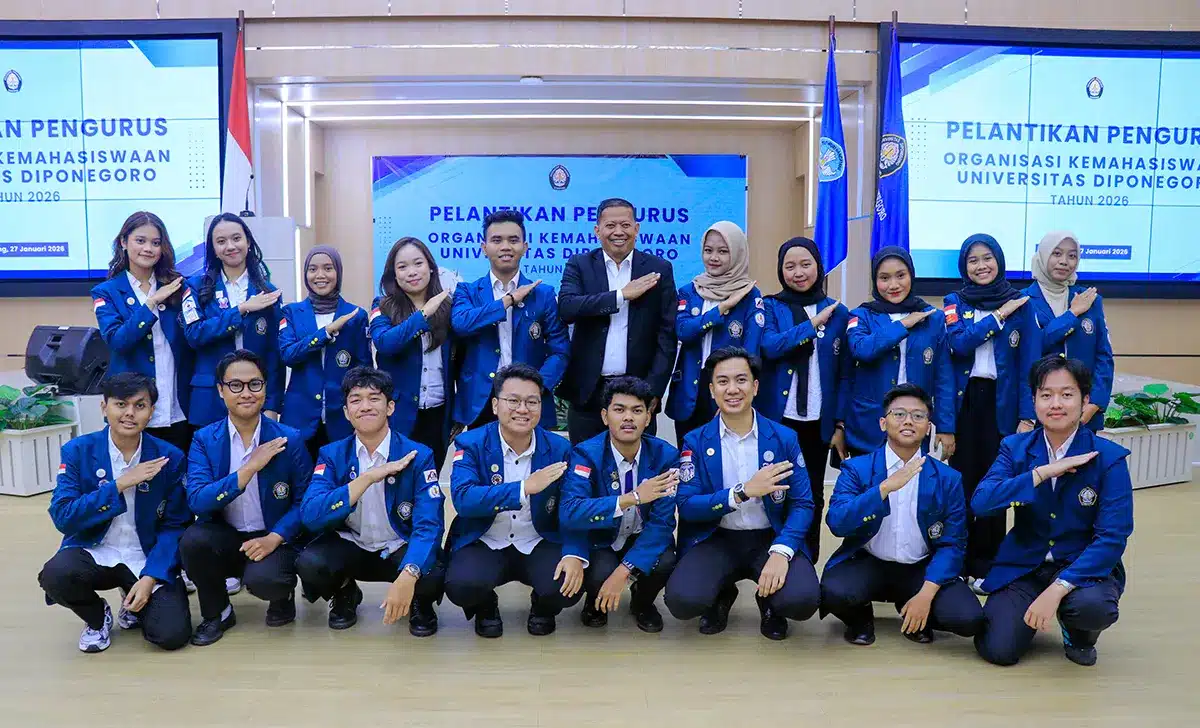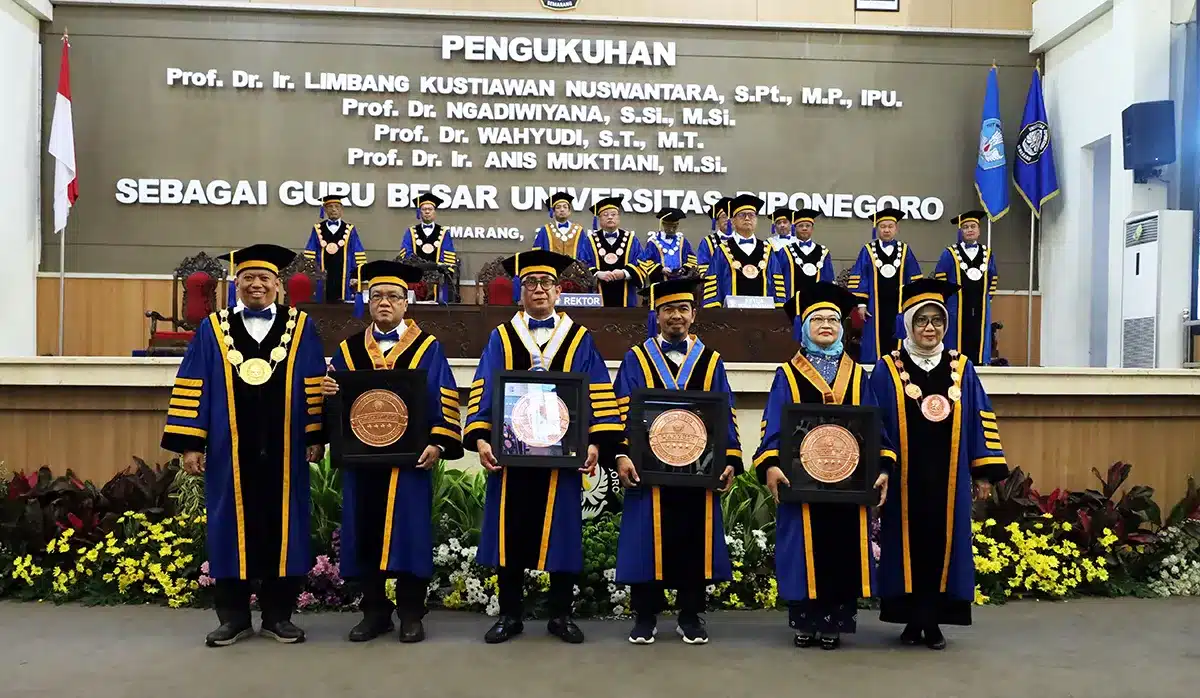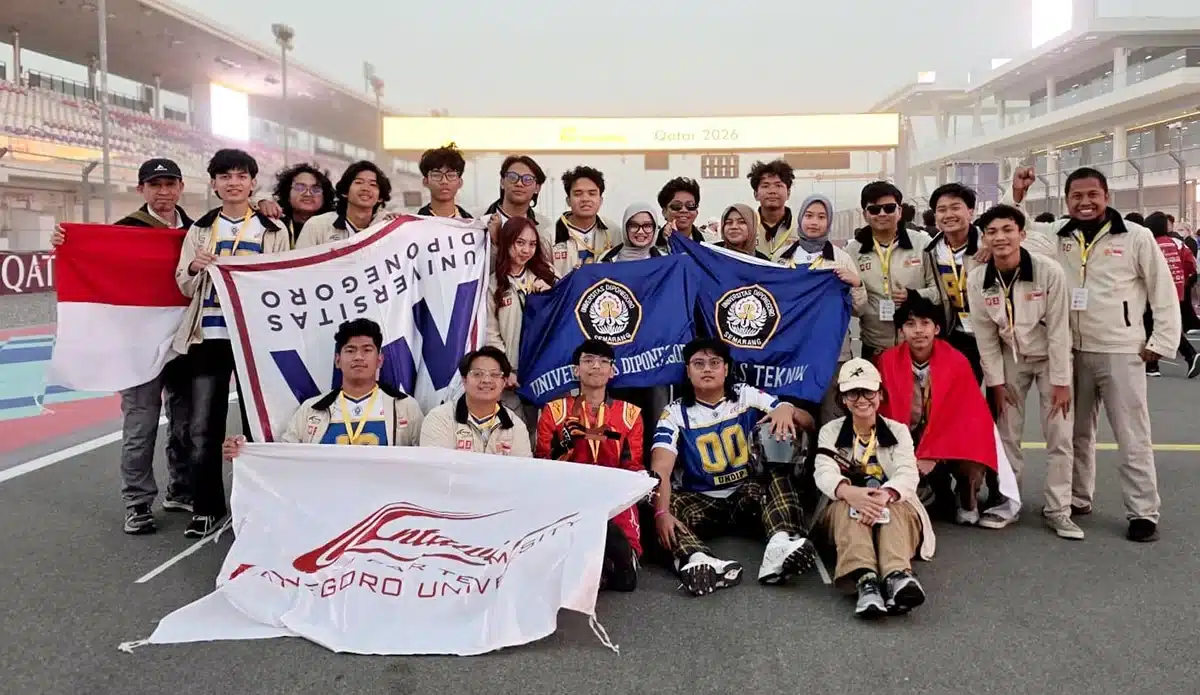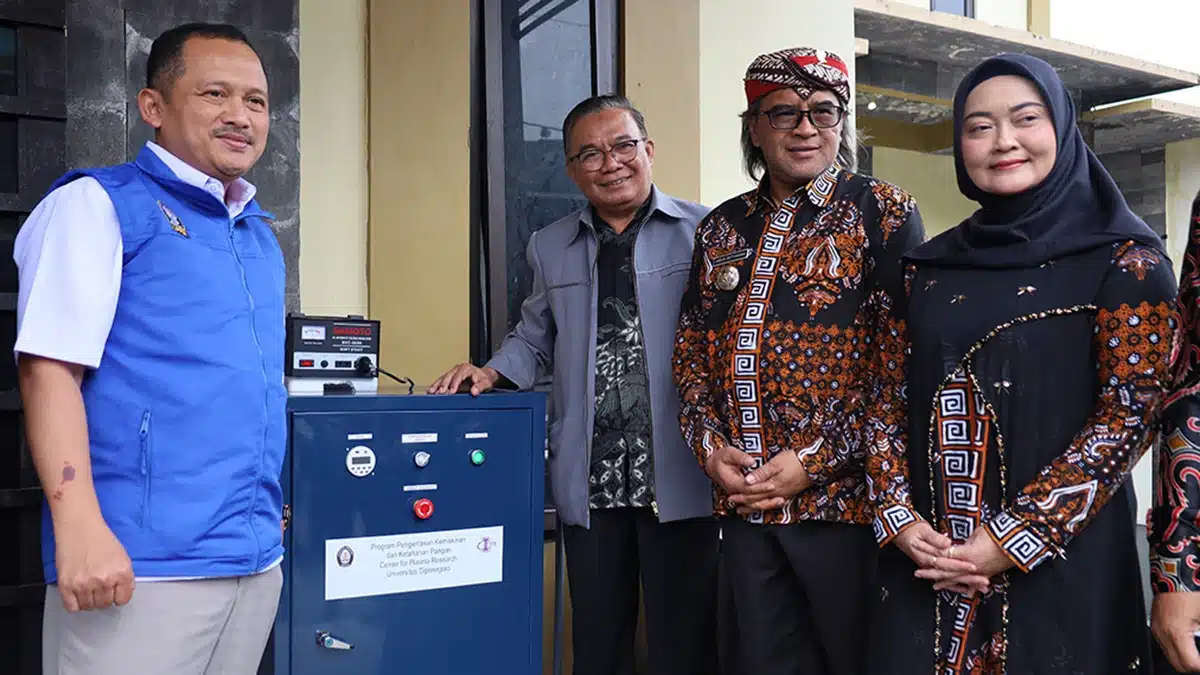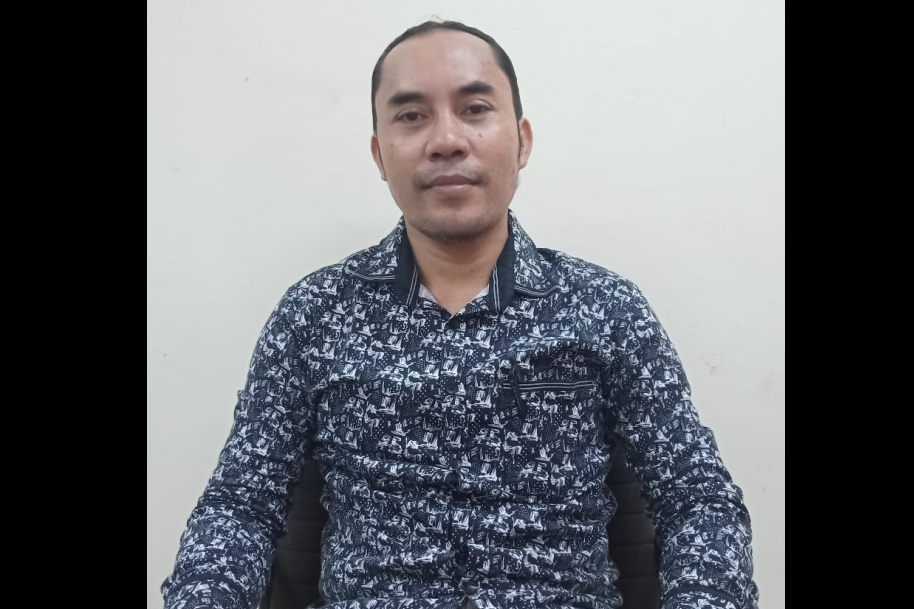Becoming an excellent study program in 2030 at the Southeast Asian level in the field of Japanese studies, especially in the fields of language, literature, and culture is the vision of Japanese Language and Culture Study Program, Faculty of Humanities, Diponegoro University. Meanwhile, its vision includes providing quality and excellent education based on research in the fields of Japanese language, literature and culture; developing quality scientific research and publications in the fields of Japanese language, literature, and culture; carrying out community service based on quality research in in the fields of Japanese language, literature, and culture; implementing a transparent, accountable, and sustainable management of study programs.
“Japanese Literature Undergraduate Study Program since 2018 has changed its name to Japanese Language and Culture Undergraduate Study Program. This is an adjustment to the results of the national consortium of Japanese Language Study Program throughout Indonesia, so that the name Japanese Literature is replaced with Japanese Language and Culture. Therefore the subjects studied by Japanese language learners in higher education are on wider scope, including aspects of Japanese language and culture,” said Budi Mulyadi, S.Pd., M.Hum, as Head of Diponegoro University Japanese Language and Culture Study Program.
Meanwhile, the subjects studied at the Japanese Language and Culture Study Program at UNDIP include 7 credits of compulsory national courses, there are courses of Religion, Pancasila and Indonesian Citizenship. Meanwhile the 16 credits of compulsory university courses include courses in Sports, Internet of Things, English, Entrepreneurship, Community Service Program and Thesis. Compulsory courses for study programs consist of 212 credits which include Japanese Grammar courses, Speaking courses, Japanese Letters courses, Reading courses, Noble Listening courses, Noble Writing courses, all courses from elementary to intermediate levels. Other supporting courses such as Japanese Linguistics, Japanese History, Japanese Culture, Japanese Literature, Japanese Computers, Japanese Translation, Project Work etc. There are elective course which is 4 credits of Teaching Methods and Public Speaking courses. Then in Independent Campus Courses there are 10 credits of Basic Japanese courses, Basic Japanese Conversation courses, Basic Letters courses and Business Japanese courses.
Talking about the differences between Japanese Literature and Japanese Education, Budi Mulyadi explained that Japanese Literature focuses on studying matters related to the field of Japanese literature which includes the history of Japanese literature such as classical, medieval, modern Japanese literature, as well as Japanese literature such as Japanese prose, poetry, drama of famous Japanese literary figures. Meanwhile, Japanese Education is a broader study of things related to Japan such as language or linguistics, literature and culture. In Undip Japanese Literature Undergraduate Study Program, the scope of studies are more about Japanese Education includes Japanese Language, Japanese Literature and Japanese Culture; three of them are specialization study for students. Students are given the freedom to choose language specialization, literature specialization or cultural specialization.
Japan is very familiar with its manga and anime cultures, according to him, manga and anime popular cultures are also used as a medium for learning Japanese culture because those contain many elements of Japanese culture, both in classical and modern aspects that can be learned by students. In addition, manga and anime are often the object of thesis writing material for students who take literature and culture specializations.
Regarding the strategy of this study program in developing public’s interest, he said that many steps have been done, include promotion by holding an annual Japanese cultural festival called ORENJI which is held in collaboration with Student Association of Study Program. The event contains national level competitions aimed at high school students throughout Indonesia and the general public. Contests held are Japanese speech competitions, Kanji Writing competitions, Japanese Knowledge competitions, Japanese Fairy Tale Reading competitions, Japanese Dance competitions, etc. With this competitions, it is hoped that high school students and the general public will be interested in learning Japanese at Undip Japanese Language and Culture Study Program. This event receives good responses proved by many participants registered to take part in the competitions, not only from Central Java but also from Bali, Palembang, East Java and West Java. Of course, these various activities are an effective way to promote Undip Japanese Language and Culture Study Program.
In addition, activities of ORENJI Japanese Cultural Festival featuring various types of entertainment ranging from band performances, cosplay, traditional and modern Japanese dances, stands selling Japanese specialties, special booths for fans of manga and animation, Japanese haunted houses, workshops of Japanese art and culture. This activity is usually held every November and presents approximately 7000 visitors. This event is very well known and received very good reviews from visitors. However, due to COVID-19 pandemic, ORENJI event is planned to be held online in this year.
“Another activity is to do community service to high schools in Central Java and Yogyakarta so that high school students want to learn Japanese in Undip. This activity is in collaboration with graduates who become Japanese language teachers in high school so that they are willing to promote Japanese Language and Culture Study Program. Promoting through broadcasts at RRI Central Java which is carried out 3 times a year, lecturers of Japanese Language and Culture Study Program are given the opportunity to present at events of RRI Central Java and create platforms such as Study Program Instagram, Study Program Website wherein it is filled with promotional content for the study program,” he explained.
Japanese Language and Culture Study Program continues to make every effort to face the challenges of learning Japanese Literature in the digital era and the Industrial Revolution 4.0, includes starting to carry out lectures using online media such as MS Teams, Zoom, Undip Kulon. At the era of internet, many online videos are used to support the lecture materials. We also provide information on links or websites that can be accessed by students to study independently as additional learning, and provide internship opportunities for students in institutions or companies that have collaborated with Study Programs,” he said.
In supporting Undip’s progress towards World Class University, Japanese Language and Culture Study Program also contributes by organizing a summer course for foreign students which is planned to be held on September 2021 with the theme “Knowing Indonesian Cultural Diversity” and holding seminars / public lectures by inviting professors from abroad.
“In 2021, Japanese Language and Culture Study Program has held two webinars inviting speakers from Japan. Prof. Shinji Nobira from Aichi University gives materials about “Environmental Education, Morals and Lesson Study in Japan” on January 14th 2021. The next lecture held by Prof. Dr. Hisanori Kato from Chuo University Japan with the theme of “Relations between Society and Religion-Social Analysis of Islam and Indonesia” on March 27th 2021,” he concluded. (Linda – Public Relations)
Translated by: Titis (Public Relations)


